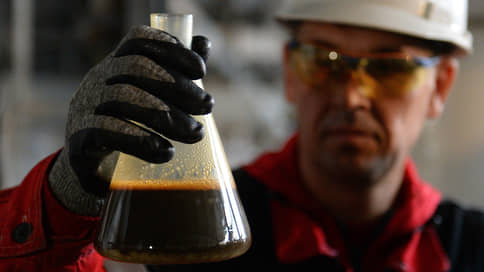The budget says goodbye to Urals – Newspaper Kommersant No. 67 (7512) of 04/18/2023
[ad_1]

The rate of duty on oil exports in the last year of the existence of this payment will be determined not from the price of the Russian grade Urals, but based on the cost of the Brent blend. Such amendments to the legislation were submitted to the State Duma by the Ministry of Finance. This should somewhat help the authorities replenish the federal budget, which has faced a more than 40% drop in oil and gas revenues this year. However, unlike the MET, for which such a procedure was adopted back in February, in the case of the duty, the increase will not be significant due to the huge difference in the amounts of these payments.
The average price of Urals calculated by the Ministry of Finance on Monday (for the monitoring period from March 15 to April 14) hardly added optimism to the department: despite the increase in world prices caused by the OPEC + decision to reduce production, the cost of the Russian variety turned out to be very modest – $ 51.15 per barrel . This is slightly more than it was in March – $47.85, but much less than the level of $70.1 per barrel included in the 2023 budget.
Such a price does not even allow collecting the basic amount of oil and gas revenues – this, we recall, is 8 trillion rubles decomposed by months. annual revenues, the minimum required to meet budget expenditures. Oil and gas revenues in the first quarter of 2023 fell by 45% compared to the same period last year (see Kommersant for April 6).
To rectify the situation, amendments to the Tax Code were adopted in February, according to which the MET should be calculated using not the cost of Urals, but the more market price of Brent. Recall that the reason for the “distrust” of Urals is that its price is calculated on the Mediterranean and Rotterdam oil markets, and after the forced reorientation of Russian supplies from European to other markets, it has ceased to be representative. The prices of real deliveries (primarily to India and China) are not completely transparent and strongly depend on the length of the “transport arm” and other factors. Therefore, according to the formula adopted in February, already in April the MET will be calculated from the price of Brent minus $34. Further, the discount will decrease for three months in a row – up to $25 in July. When substantiating the formula, the Ministry of Finance believed that it would add approximately 660 billion rubles to the budget.
Now the same approach will be applied to the export duty. This follows from the amendments sent by the government to the State Duma immediately for the second reading of the draft law on amendments to the law “On Customs Tariffs”, which is suitable in meaning. It is established that the Brent price (more precisely, the North Sea Dated quotation coinciding with it on the North Sea market) minus $204.4 per ton (this is $28 per barrel) will be used to calculate the duty for June, and Brent minus $182.5 for July and beyond per ton ($25). Thus, the discounts will be exactly the same as for the MET calculation.
This will apply if such a calculation (instead of using Urals) would be more beneficial for the budget. To clarify, in the period from mid-March to mid-April, Brent blend cost $80.4 per barrel, with a Urals price of $51.15, the discount is $29.25. At such prices, the use of a discount of $28 and $25 makes sense, that is, it will give an increase to the budget. However, unlike the production tax, its size will be small. “Compared to the MET, these are insignificant, not so significant amounts. We must count. But it is, rather, that there are systemic changes. This was the key goal,” Deputy Finance Minister Alexei Sazanov explained yesterday. It should be noted that in terms of revenue, the export duty is much inferior to the oil MET (47 billion rubles against 1.282 trillion rubles in the first quarter) and, under the terms of the long-accepted “tax maneuver” in the oil industry, it should completely disappear as early as next year.
[ad_2]
Source link






